— August 18, 2017
Simplifying a massively complex algorithm sounds like a fool’s game. Google’s search algorithm is like a rope. A thick rope full of fibers. Some of the fibers (or smaller algorithms) are old, and some are new. Some are made for on-the-fly determinations, and some are looking for old school signals. A jungle of computation!

Think an SEO can deconstruct that algorithm? Google Engineers are even surprised by results these days. For some, it’s fun to chase algorithm updates and report on them. I definitely appreciate their helpful contributions to the SEO scene, but nobody has found the full cheat codes to rankings. In the old days we got close. Today? We’re further away than ever.
But for those who’ve been in SEO for a long time, we’ve become used to the unknowns. We can have opaque conversations about ranking algorithms, because we collectively know where the blanks are. The missing pieces are part of our language. However, for new SEOs, and especially companies who don’t speak SEO, they could use a shortcut.
Here’s What We Know
We know Google factors more than 200 signals in a ranking, some of which are factored in mere milliseconds. Those signals change often. Public patents suggest some signals they could be looking for, but for the most part, we don’t know anything for sure. By design, everything is in flux.
That’s part of the game. SEO is not for the weak of heart.
We know the standard signals Google has spilled throughout the last two decades (yes – it’s been that long). Keywords in title tags. Page load speed. Context in URLs. Backlinks. And several more, to which Google reserves the right to remove, dampen, or amplify at any point without even a whisper. Need a refresher? Check out Moz’s most recent ranking factors study.
In the SEO industry, we test. We try new things and come up with theories. When you hire an SEO, you are hiring someone who speaks the language, learns from the trades, and ideally experiments constantly. I don’t think an SEO can actually be an expert. It’s like being an expert on snowflake patterns.
My Analogy
So with such a broad science, I still find it valuable to paint a broad picture with broad strokes. Because a little understanding is better than no understanding.
Imagine, if you will, a checklist of items that Google has in its system to check each time it processes a page for rankings. One signal may look like this (using a scale of 1 – 10 for the sake of easy math):
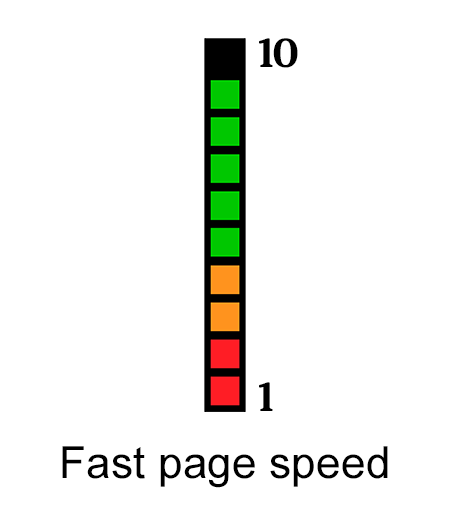
Now, consider Google is measuring you against other websites:
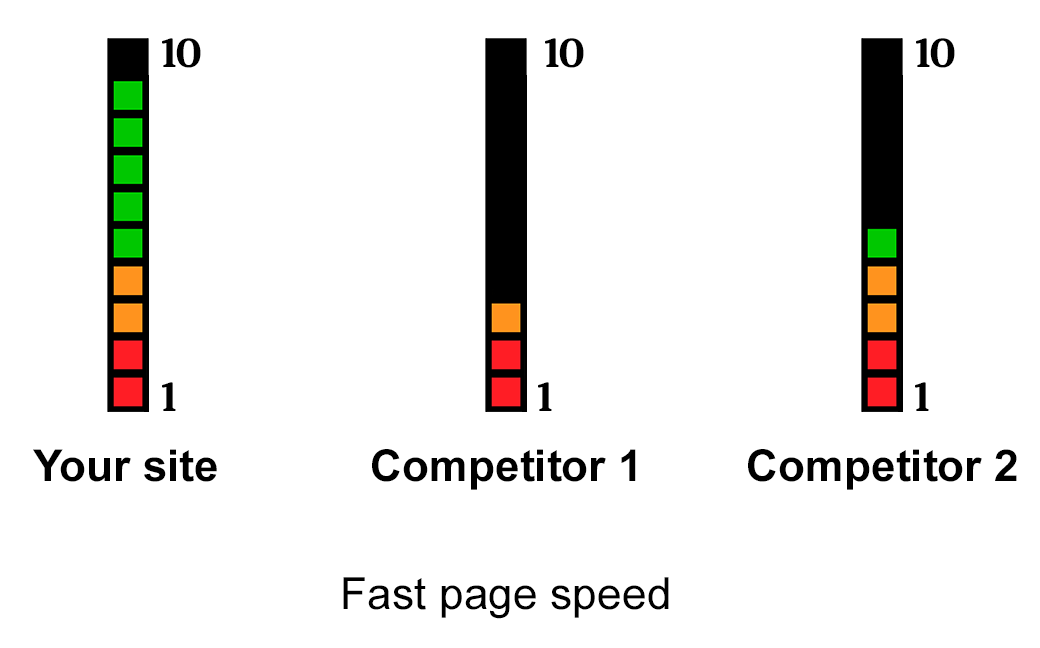
If the internet was only 3 web pages, and Google only used one signal, your site would ideally be seen as the best result.
Unfortunately, Google is factoring many signals (pretend I added more than 200 below, I simply don’t have the patience to draw that many):
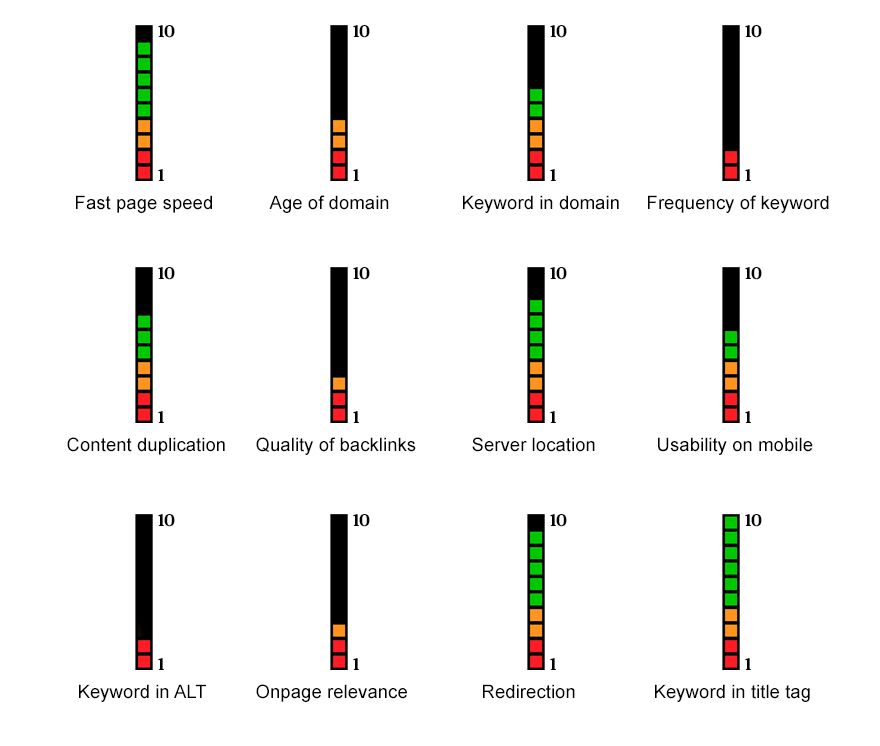
And, Google is comparing your signals to all of the other websites out there:
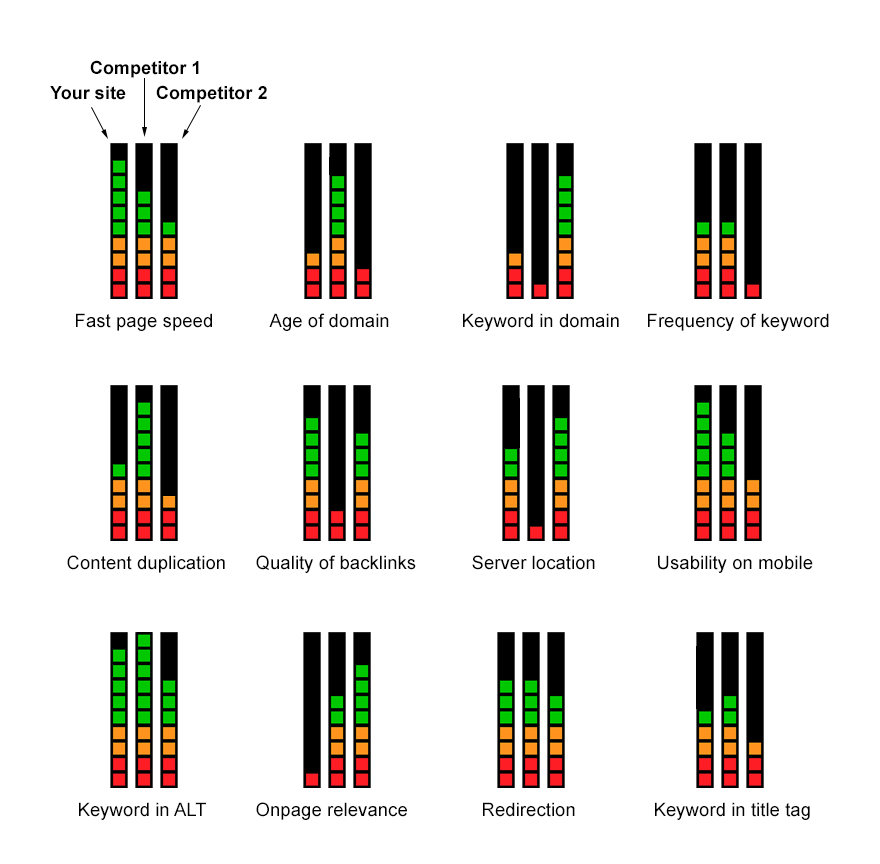
You can see where this is going. To add to the complexity, Google overlays dampening, conditional rules, and “if this then that” mechanics to finely tune the results, keeping it much more complex than my very simple illustrations. Google has told us content, links, and machine learning (called RankBrain) are the biggest factors. So, we’re looking at a much bigger calculation at this point. Below is an example where specific rules would impact certain signals differently.
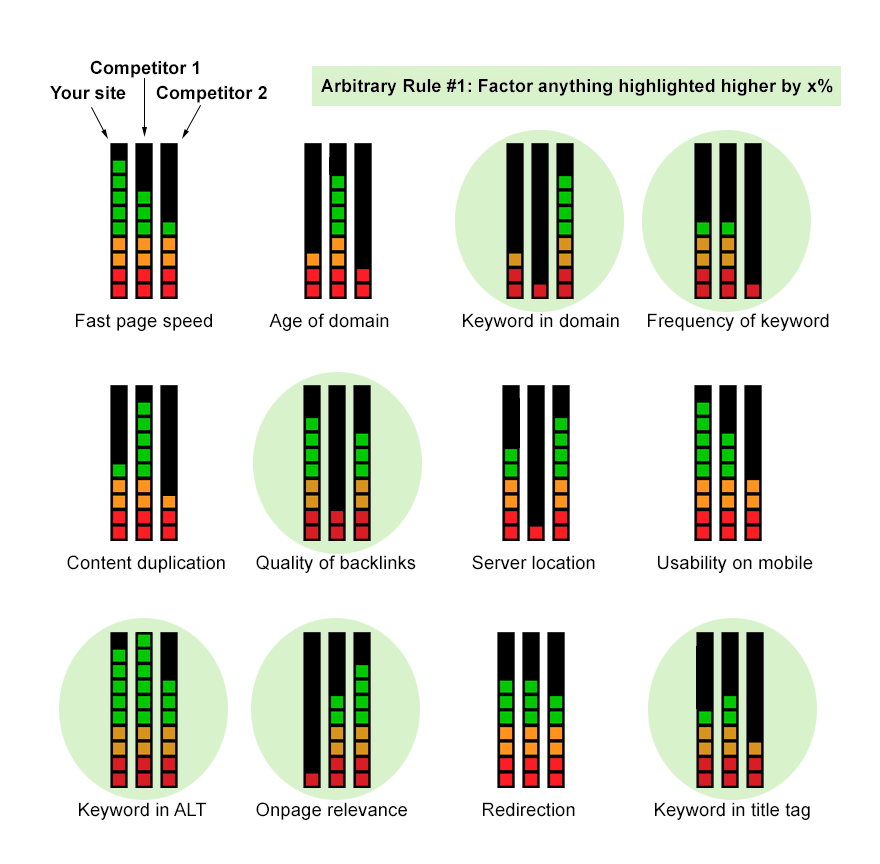
Get the picture? Is your head starting to hurt? The complexities continue layering upon each other. Those Stanford boys (Larry Page and Sergey Brin) were brilliant, and they handed their original Google ranking algorithms over to more brilliant people with the request of improving their idea.
What’s The Simple, Actionable Takeaway?
With all this in mind, the simple takeaway is… do your best to get a 10 in every single category, no matter how minute you may believe it is.
Seriously – that’s really my takeaway.
When you boil it down, SEO is really about being better in the appropriate signals than your competitors. Our ultimate goal is to score higher in every area as possible, thus knocking competitors down a few pegs in ranking results. Since we’ll never know what the exact signal mix is for any query, I find less value in forensic SEO, and more value in just pushing forward with creating the best webpge possible on every front.
If you’re a company working with an SEO, lean on them to show you all the signals the industry either knows about or believes could be real. And work with them to implement the highest quality changes in each category.
If you’re an SEO, continue to listen, practice, and learn all the great things the industry provides, as well as discovering your own theories. SEO is an experiment, so treat it as such.
And lean on the earlier analogy when you’re facing tough questions:
“Bill, we implemented all the site speed recommendations to the absolute best of our ability. It’s been 4 weeks and we’re not ranking better. Why?”
“Well client, let me give you an analogy…. [describe visualization above]. And that, client, is why we still have a lot of work to do until our overall signal mix is better than everyone else’s on the internet who ranks for a given keyword. Strap in, Bucko – the ride’s not over.”
See folks, this is why SEO has gotten harder in the last few years. The signal complexity has grown! This is why it often takes a much longer time to achieve goals, and why the reliance and participation of the website owner is vital.
Digital & Social Articles on Business 2 Community
(99)







